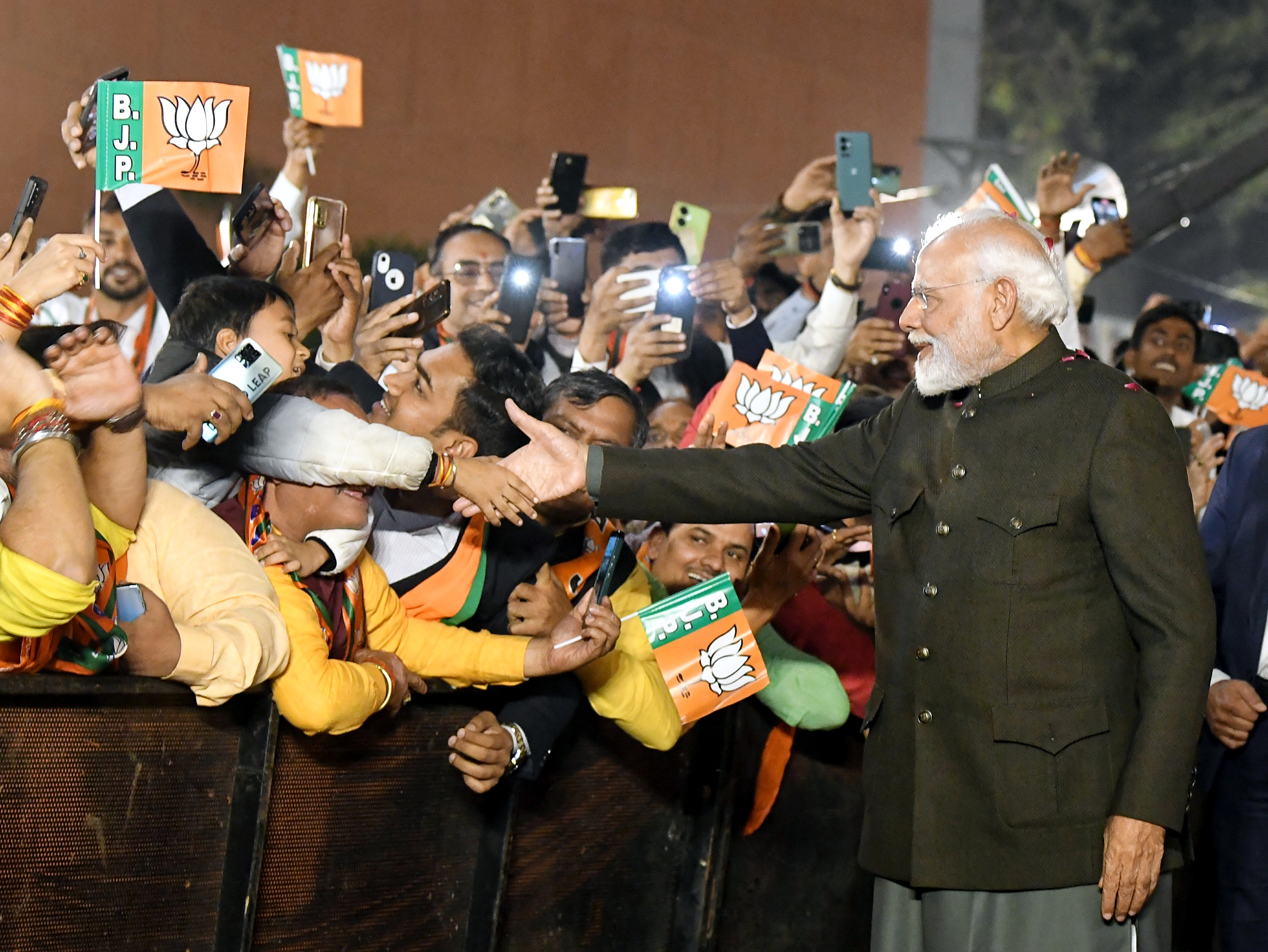
After the Bharatiya Janata Party’s electoral sweep through the states of Rajasthan, Madhya Pradesh and Chhattisgarh, and Congress’ win in Telangana, a new narrative is being built on the so-called North-South divide. The buzz being sought to be created is about how the “illiterate, undeveloped” Hindi heartland in the North votes for the Hindutva party BJP, while the “enlightened” South votes for a “liberal secular” Congress. It is disappointing that most of the so-called liberal commentariat on social media is trying to take heart from this spin. Equally disappointing is when Congress leaders like Karti Chidambaram and others point out a “North vs South” scenario—but of course without being toxic—possibly in the hope to reap political dividends in the South. Such a narrative is divisive and best avoided, apart from being fact free. Numbers show that in the current Lok Sabha, the BJP has 29 MPs from the southern states—25 from Karnataka and 4 from Telangana. Arguably, it is a rising force in Telangana and at least its Tamil Nadu state president, K. Annamalai is creating a lot of buzz in the state. The BJP may not be doing well in Kerala, but it is holding on to its 36% vote share in Karnataka in spite of its Assembly election defeat there. The BJP, in alliance with All India N.R. Congress, governs tiny Puducherry. Just as the BJP has a lot of work to do in the South to grow, so does the Congress in states such as Andhra Pradesh and Tamil Nadu. Congress is non-existent in Andhra Pradesh, and cannot win a single seat in Tamil Nadu without piggybacking on the ruling DMK. In fact, wherever strong regional parties are in power, be it in the North or the South, both BJP and Congress need to, or have had to work hard to win these states. Uttar Pradesh, Bihar, West Bengal and now Punjab and Telangana are cases in point. So instead of trying to give a lazy spin of North vs South to explain the Congress’ defeat in the three states, it would be better to be gracious in defeat and acknowledge that the party’s strategy was not up to the mark to counter that of the BJP’s.
When it comes to elections, negativity does not usually pay electoral dividends—any sort of negativity. Take Rahul Gandhi’s example. Broadly speaking, what are Rahul Gandhi’s campaign points in any election? Casting aspersions on a particular industrialist, calling the Prime Minister names, claiming democracy is dead in India, demanding a caste census, and saying that the OBCs are not getting their due. Not one of these issues found any resonance with the voters in the latest round of elections. When the focus should be on development, on fulfilling aspirations, giving an inspiring vision to the people, trying to centre-stage caste or making unsubstantiated attacks on the Prime Minister proves a lack of imagination and even desperation. Rahul Gandhi›s strategy of making personal attacks on the Prime Minister is likely to have zero returns. A visionary with a strong reformist streak, the Prime Minister is seen as the answer to India’s problems—someone who has come up from the grassroots and whose aim is to work for the betterment of the people. The voters have seen him working for the last 10 years and look up to him as the leader that the country needs at this point in time. They believe in his sincerity and in “Modi ki guarantee”, the reason why the BJP, when in trouble, like it was in Madhya Pradesh initially, makes the PM the face of the campaign. This is not to say that the Opposition should not criticise the government and India should move towards a one-party rule. But at least criticism should be constructive, seeking of power should not be for the sake of power. The message should not go out that the only aim of the Opposition is to get rid of PM Modi—that beyond this there is no agenda, no plan. The voter is mature enough to see through such desperation.
Then there is the problem of transferring the dislike for a leader or a party to the electorate. In Rajasthan, some Congress leaders are accusing the voters of treachery. This goes against the fundamental principle of democracy. People’s decision is always supreme. They are, as the Prime Minister says, “Janata Janardan”—people are God. A particular political party may not like the people’s decision, but instead of berating the voters, it should do some soul searching. Take the example of Madhya Pradesh, which the Congress believed that it would sweep with at least 140 of the state’s 230 seats. Anecdotal evidence suggests that Congress leaders were over-confident to the extent of being complacent. Towards the end of the campaign, they were discussing the perks of power sitting in their party offices, when the BJP, helmed by the PM, was working on the ground to turn around an election that even they were admitting in private, was a tough contest. The Madhya Pradesh result is a reflection of how the two parties approached the election.
As for the needless chatter on the so-called North-South divide, India is a melting pot. As mobility increases and social media bridges the distances between different parts of the country, the North-South divide, if it at all existed, is history. Just as the BJP has the potential to grow in every part of the country, so does the Congress. All that both parties need are imaginative strategies and hard work.